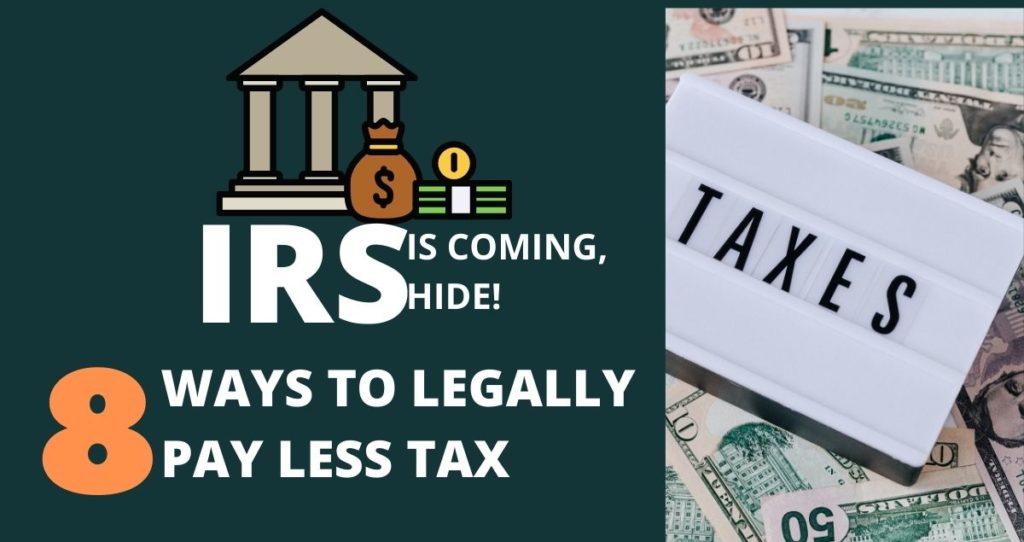Is your family so poor that you are always afraid of inviting people over? Are you facing financial stress, living paycheck to paycheck, and ashamed of yourself that no matter how hard you try your financial situation never gets better? Have you ever wondered why is your family so poor in the first place? In this article, I put together a list of 7 reasons you are poor and tips to lift your family out of poverty.
Being poor is one of the worst experiences of human existence. Poverty makes it harder to afford basic human basic needs such as food and shelter. While there are many reasons why you are always struggling financially, the real answer to why your family lives below the poverty line might surprise you.
Even if you are poor, however, it does not mean your fate is sealed. No matter your age, education level, or experience, you can lift yourself out of poverty and live the life you always dreamed of. All it takes is an affirmative decision to make a positive change in your life, setting up unbreakable goals, and being bold and disciplined enough to achieve those goals.
If you are ready to learn why your family is so poor and how to lift yourself out of poverty, the following 7 tips will be your guide.
Without further ado, let’s get started.
1. Lack of financial education
One primary reason your family is so poor is the lack of financial literacy. Keep in mind that financial literacy has nothing to do with your education level. Millions of people are sitting on college degrees or higher and yet still live paycheck to paycheck.
Financial literacy focuses more on how you effectively use your financial skills such as budgeting, investing, saving, paying off debt, and keeping up with other personal finance aspects. Your family is very poor because everyone in your family thinks that money is designed to be spent to fulfill your desires. Many people call this You Only Live Once(YOLO). No one in your entire family knows any better because good financial habits are never part of your family’s conversations. Parents never talk about money, so, kids never learn anything until they are already drowning in debt. No one knows how to manage the money that comes into your family.
Without a solid understanding of how to manage your finances, save, invest, and create diversified income streams, it’s challenging to break free from the cycle of poverty. You cannot avoid financial traps such as bad debt because you don’t know how. If your family never talks about budgeting, building wealth, or investing, you are more likely to live in poverty your entire life. Sometimes poverty is passed on for generations because no one in your family gets the financial education needed to break out of poverty.
If you are ready to leave your poor family, get out of poverty, and become rich, here is a step-by-step guide to get out of poverty.
You might also like: 53 Personal Finance Terms You Need to Know
2. Your family is so poor because you don’t set financial goals
Every success in life requires great goals and the willingness to pursue them. There is no other way around it and no shortcuts. Poverty is not different. The lack of financial goals always leads to overspending, lack of direction, and abuse of money. Your family is so poor because you lack financial goals. You know your family is poor but you don’t have goals to lift yourselves out of poverty. All you do is complain about how you are always hungry, you don’t make enough money, you pay too much tax, etc. You are probably living on food stamps or other government assistance programs.
Without clear and achievable financial goals, your family might find itself in a constant state of living paycheck to paycheck. Goals help motivate and guide decisions related to spending, saving, and investing.
The difference between your family and a rich family is goals. Goals are what keep you going and fighting through hard times. You need financial goals to save money and invest when everyone is spending. Goals give you a reason to hustle.
To prevent your family from being so poor, start setting up financial goals and start allocating money towards those goals.
Some important financial goals you should have include, but are not limited to, paying off your debt, saving for retirement, creating an emergency fund, saving for a house down payment, building good credit, creating a budget, etc.
Related: 10 Best Saving goals You can start today
3. Overspending is keeping your family poor
While you might think that your family is so poor due to not making enough money, the opposite is also true. Your family is so poor not because you don’t make enough money, but because you spend too much. This is true for millions of families around the country.
Your family may not be living within its means which justifies why you don’t have any money left at the end of each month. Overspending on unnecessary items while neglecting crucial financial responsibilities can rapidly drain your resources, leaving nothing for savings or investing. Some of the habits that lead to overspending are impulse shopping, buying domain name products, trying to impress people, driving expensive cars, and living in expensive homes. In other words, your family is so poor because you live above your means.
To lower your expenses, it is best to establish a family budget and cut down on expenses. Here are 20 ways to reduce expenses and boost your savings. You can also use the 50-30-20 budgeting rule to take control of your finances and lift yourself out of poverty.
You might also like: 11 clever saving money tips for young adults
4. Lack of investments and streams of income
Investing is often regarded as a game of the rich. What is true is that rich people were once poor and worked tirelessly to lift themselves out of poverty. Yes, some inherit a great amount of wealth. But, most millionaires and billionaires are self-made. Meaning, that they did not have money, and through different strategies such as investing, starting businesses, and hustling through life, they accumulated wealth.
If your family is so poor that you cannot even afford food, you are pretty much in the same spot where rich people used to be. All you have to do is make a transition from poverty to riches and you can do that by following proven financial strategies that rich people use to get rich and stay rich such as investing.
If you never invested before, it might be difficult to get started. The following is a guide to investing money when you are poor.
The most effective way to grow wealth
One of the most effective financial strategies that millionaires use to build wealth is investing. You don’t have to be rich to invest money and starting small is always a great way to invest especially when your family is poor. Investments provide an opportunity for your money to work for you and produce a passive income.
Investing when you are poor is often hard as you cannot afford to take more risks and your investing skills are limited. That does not mean you cannot invest. Since your family is so poor, you need to start investing in low-risk investing options. Start with fixed-income assets such as high-yield savings accounts, CDs, bonds, and T-bills. These investments pay a fixed interest and some of them come with insurance. For example, money in your deposit account will be insured up to $250,000 per depositor and per account category if your institution is a member of FDIC.
Also, learn the basics of investing to help you make an informed decision and avoid financial mishaps. Here is a list of personal finance terms you can start with to sharpen your financial knowledge.
5. You have too much debt
High amounts of debt, especially high-interest credit card debt or loans, can easily hinder your family’s financial growth. Not only does this debt eat into your income, but it also negatively affects your credit score which makes it harder to access credit.
Debt is what is currently keeping thousands of families in prolonged poverty. Your family is probably struggling with expensive mortgages, car loans, student loans, high-interest credit cards, and personal loans. Most of these debts come with high interest which makes it harder to keep up with your monthly payments. By spending all your wages towards debt payments, you never get a chance to boost your retirement savings or invest in your future which keeps your family so poor for a long time.
If your family is struggling with an excessive amount of debt, taking care of these debts will be the only path to getting out of poverty. You need to stop borrowing, put in place a debt management plan, and establish a debt repayment strategy.
What is the best way to pay off debt?
The most effective way to pay off debt and lift your family out of poverty especially when you are living paycheck to paycheck is to use the Debt Snowball strategy. With this strategy, you organize your debts from the smallest to the largest and pay them off in that order. This strategy will be your best choice as it lets you get rid of smaller debts first and gives you a sense of accomplishment.
Another strategy you can use to pay off your debt and get out of poverty is to use the Debt Avalanche Strategy. This debt payment method allows you to pay off your debts starting with debt that has the highest interest to the lowest interest. With this strategy, you organize your debts from the highest interest to the lowest and pay them off in that order. While this strategy might not be the easiest way to pay off it is the best way to take control of your debt and improve your finances as it prevents your debt from growing exponentially.
Here are a few more tips to pay off debt and get your family out of poverty.
- 6 effective ways to pay off credit card debt
- 6 effective ways to pay off revolving debt fast
- How to pay off your mortgage faster?
6. Lack of emergency savings
Your family is so poor because you faced an emergency that put your finances in jeopardy and messed up your finances for a very long time. Millions of people don’t understand the importance of an emergency fund. What is true is that an emergency fund is one of the single most important measures to protect your finances during financial hardships.
An emergency fund can mean the difference between staying in your home and becoming homeless. If you did not know it, some of the homeless people you see in your neighborhood used to have six-figure incomes and lived in stable homes. So, what changed? All it takes to lose it all is a simple financial setback. Without an emergency fund, any unexpected expense can spell a financial disaster. This will trigger a cycle of borrowing and accumulation of debt that is hard to pay off.
Related: 4 ways to save for emergency fund fast
You can become homeless without an emergency fund
For example, let’s assume that you just lost your job while still owing the bank $350,000 in mortgage and you have no emergency fund. The lack of emergency funds means that you will fall behind on your monthly payment and soon default on your loan. After 120 days without securing another job or at least making a successful payment, your mortgage lender will initiate a foreclosure. If you have done your homework, foreclosure means you get kicked out of the house. So, now you don’t have a job and no place to sleep. You can’t even get an apartment if you don’t have a job. You just head straight to the streets and become homeless like everyone else.
That is why having an emergency fund is critical for anyone who wants to take control of their finances and get out of poverty. If you had an emergency fund, you could use those funds to pay off your mortgage while looking for another job. That is how you protect your finances in the face of financial challenges.
How much should you save in your emergency fund? While there is no exact value needed for your emergency savings, you should save at least 3 to 6 months of your monthly expenses. For example, if your monthly expenses are $3,000, you should save between $9,000 and $18,000 in your emergency account.
Related posts: Should you invest your emergency fund for better returns?
7. Poor money habits are keeping your family poor
The money stays where it is welcome and treated right. Poor people are usually the ones with bad money habits which justifies why they are always so poor and living paycheck to paycheck. Your family is poor because you probably gamble a lot, you spend extravagantly, you never budget, you are engaged in impulse purchases, you buy expensive stuff, you drink every day, you drive sports cars, live in expensive homes, etc. While these financial habits might sound OK to you, they are the ones keeping your family so poor that you are even afraid of inviting people over. Bad money management leads to chronic poverty and long-term financial struggles.
That is a fact.
The lack of discipline can lead to overspending, under-saving, and recurring debt. Bad financial habits also lead to excessive borrowing which further exacerbates your financial situation. Your family is probably one of those who spend every penny they make, max out their credit cards, and still borrow more money from friends and family members. What is true about money is the more money you spend, the higher the chance you struggle financially. The more money you borrow, the longer your family stays in extreme poverty.
If your family is so poor that you can’t even afford basic means, it is time to improve your money habits. Start with a simple budget and try to save some of your wages for long-term financial goals such as emergency funds, retirement savings, a house down payment, travel, investing, etc.
Even if you are saving 1% of your wages, it will make the difference. Remember, it is all about developing new habits and getting rid of old ones. Once new habits are established, you can always increase your saving rate. If you are trying to save money but don’t know how, use the 50-30-20 budget rule especially when you are getting started.
What to do if your parents are poor?
Not everyone is born with a silver spoon. Some people are born in extreme poverty and a few are able to break out. The good news is that your parent’s financial situations do not dictate your future. If you choose to not do anything about it, however, you will end up like them. But, if you want to carve your destiny and lift yourself out of poverty, here is a strategy for you.
- Educate yourself. Knowledge is one of the most powerful tools for achieving financial success. You don’t need to go to school for this knowledge. Self-education always works fine. Learn about personal finance, budgeting, saving, investing, and how to avoid bad debt.
- Develop a strong mindset. There will be obstacles in your way and a lot of people will discourage you. You will also doubt yourself, and think about quitting, and the thoughts of giving up will visit your mind. If you are optimistic and know what you want, however, you will endure all the pain.
- Establish unbreakable goals. Create a plan for your life and write down your goals. What do you want to achieve? Make them clear, concrete, and realistic, then create a step-by-step plan on how to achieve them.
- Work hard and be disciplined. Success doesn’t come overnight, it takes time, effort, and perseverance. Be consistent with your effort and over time, you will start seeing results.
- Network and create useful relationships. The people you hang out with will largely determine your success. Surround yourself with positive, hardworking people who inspire you.
- Establish multiple streams of income. Don’t rely on one job or source of income. Start a side business, invest, or find other ways to increase your revenue.
- Create a budget. Managing your finances wisely is key to breaking out of poverty. This includes budgeting, saving, and investing.
You might also like: 9 important steps to build a financial plan that works
Why are some people financially irresponsible?
While there are many reasons some people are financially irresponsible, the main factors come down to their behaviors, emotions, and decision-making abilities. For example, some people think that money is meant to be spent even if it means living paycheck to paycheck. For others, what they desire overrides their moral and conscious decisions. Immediate gratification becomes the greatest killer of financial dreams for millions of people. People don’t want to invest money and wait for 10-20 years to grow. They want to spend it now.
Beyond these underlying factors, exposure to money and financial literacy especially at an early age can also determine whether you become responsible or not. For example, millions of people act financially irresponsibly because they don’t know any better. No one ever told them how to make better financial decisions or how to manage their money. So, they spend everything.
Some people are also poor because they are always trying to impress their peers. People indulge in overspending and pick unwise investments to fit in or impress their friends. Other people may be financially irresponsible due to deeper emotional issues or harmful beliefs about money. They may use spending as a coping mechanism for stress or low self-esteem, or they may hold subconscious beliefs that they are undeserving of financial stability.







